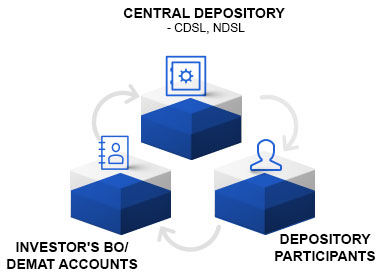
Table of Contents
Should you have a Joint Account?
Financial decisions can be difficult, especially when it comes to joint accounts. Couples may find that opening and managing a joint account offers many benefits, but there are also potential risks. In this article, we'll look at the pros and cons of having a joint account with your partner so you can decide whether or not it's right for you.

We'll also discuss ways to make sure both husband and wife are satisfied with how the money is managed in the account. By weighing all of these factors carefully, couples should be able to come up with an agreement that works best for them and their financial situation.
Advantages of having a Joint Account
Joint accounts are commonly opened by couples, business partners, family members, or friends who share financial responsibilities or goals. Joint accounts enable both parties to access the funds and make decisions together, which promotes transparency, Accountability, and budgeting. This relieves one partner from managing finances alone and can save time and money by sharing expenses. Additionally, pooling funds in a joint account can help couples accumulate funds, track progress, and achieve financial objectives together. Although joint Bank accounts have many advantages, it is crucial to communicate financial expectations and boundaries to avoid disagreements over spending habits.
Having a joint account is particularly important for married couples because it can offer several financial advantages. By pooling their money into a single account, couples can easily meet the minimum balance requirements set by banks, which could result in the exemption of maintenance fees. This, in turn, could lead to benefits such as higher interest rates and other rewards. Ultimately, a joint account for couples allows them to manage their finances better together, which is especially important when they are building a life and planning for their future as a team.
Combining funds in a joint account can make bill payments more manageable, including rent, utilities, insurance, and car payments. This approach eliminates the need to track expenses and simplifies payments. In the unfortunate event of a partner's passing, a joint account holder can avoid lengthy legal procedures and gain easy access to funds. Sharing a bank account can also symbolize trust and cultivate a sense of togetherness in a relationship.
Talk to our investment specialist
Drawbacks of having a Joint Account
Pooling funds in joint Savings Account with a partner can have its drawbacks. One of the most significant concerns is the lack of control over spending. Both parties have equal access to funds, which may lead to disagreements over frivolous spending. If one partner spends too much, the other may feel the impact, leading to arguments about what is considered necessary spending. Another problem that may arise is individual debt. If one partner has student loans, Credit Card Debt, or other personal expenses, they may be paid from the joint account, potentially causing financial strain for the other party. In some cases, one partner may make more money than the other, making it difficult to come to an agreement about how to divide expenses.
Privacy can also be an issue when sharing a joint account. Transactions made on the account are visible to both parties, compromising personal independence. One may no longer be able to surprise their partner with a spontaneous trip or purchase, as the other party would receive an alert immediately. Finally, in the event of a breakup, dividing the joint account can be a stressful and contentious process. There is also the risk of one partner draining the account and leaving the other in a difficult financial situation. Therefore, before opening a joint account, it's important to have open and honest conversations about spending habits, debts, and expectations for the future.
Factors to consider when deciding on a Joint Account
When creating a joint savings account, it is important to determine how the account will be operated. There are various options for account operation, including allowing all account holders to have individual access or requiring all holders to authorize specific transactions. By setting up these guidelines early on, you can prevent misunderstandings and financial problems, such as bounced checks or denied withdrawal requests, from arising in the future.
Establishing a clear mode of operation also clarifies which account holder has the authority to manage the account and under what circumstances. For example, if individuals A and B open a joint savings account and agree that only A will operate the account, but A passes away and B survives, B will have the ability to take over account management. In order to properly Handle a joint savings account, it's crucial to establish a budget plan. This includes determining the amount that each account holder will contribute and specifying which expenses will be paid from the joint account.
It's worth noting that a joint savings account is primarily intended to securely hold funds. Large expenses, such as loan repayments or vacations, can be paid from the savings account. For regular expenses, it's recommended to use personal savings accounts or current accounts in order to maintain transparency in transactions and optimize savings. Consider the benefits and rewards offered by different banks when opening a savings account. Some banks provide features like higher interest rates or additional perks for senior citizens or women. Compare services like lockers, ATM usage, and debit cards. Choose a joint savings account that fits your financial needs and lifestyle, such as a bank that offers airport lounge access if you travel frequently for work.
Why do we need a Current Account?
Business accounts are typically in the form of Current Accounts, as businesses usually have a large volume of inflows and outflows of funds. Current accounts are designed to facilitate daily business transactions efficiently. Typically, you can fill out an application form and submit the necessary documents online to open a bank account., Many banks in India provide an end-to-end digital process for opening a Current Account that includes video-KYC verification, making the process smooth. After you have submitted the form online, a customer care executive will assist you with the next steps, and a bank representative may visit your premises to collect the necessary documents. Once the documents are received, the account is activated and ready to use.
Types of Joint Accounts
Joint
If the account has multiple holders, all of them have equal rights to operate it jointly. Nevertheless, if any of the account holders pass away, the account cannot be operated anymore and must be closed immediately. In such a situation, the surviving account holder/s will receive the proceeds of the account.
Joint or Survivor
The account can be managed by any of its account holders, and if one or more of them pass away, the remaining account holder/s can still operate the account.
First holder or Survivor
During the first account holder's lifetime, they are the sole authorized operator of the account, and only after their death can the other holder/s perform transactions.
Either or Survivor
Only the two account holders have the authorization to operate this account.
Anyone or Survivor
An account of this type permits multiple holders, and all of them have the authority to operate it.
Best Banks to Open Joint Savings Accounts
State Bank of India (SBI) Savings Account
For opening SBI joint account, follow the guidelines as mentioned below -
- Visit the official site of SBI.
- On the home page, select ‘Apply SB Account‘ from the options menu.
- Choose ‘For Resident Individuals‘ and then select ‘Regular SB Account‘.
- Click on ‘Apply Now‘ and fill in the ‘Customer Information Section‘.
- Proceed to fill in the ‘Account Information Section‘.
- Select the Type of Account and provide the TCRN for Joint Account.
- Enter the Branch Code of the desired branch.
- Tick the checkboxes for the services you require and select ‘Jointly‘ as the Mode of Operation.
- Click on ‘Proceed‘ and note down the TARN number received.
HDFC BANK
Follow these steps to open a joint HDFC Bank savings account:
- Visit the official website of HDFC bank Savings Account.
- Fill out the Account Opening Form with the mode of holding as 'Joint'.
- Submit the required documents for all account holders.
- Submit the form with relevant documents to you nearest HDFC Bank.
- Wait for verification of the form and documents by the bank.
- Collect the acknowledgment slip upon submission.
Kotak Mahindra Bank Savings Account
To open a joint account with Kotak Mahindra Bank Limited, follow these steps:
- Visit the official website of Kotak Mahindra Bank and open an Ace Savings Account for yourself.
- Choose between the Edge and Pro variants based on the number of family members you want to include in the joint account. The Edge variant allows for up to 3 family members with an average monthly balance of Rs. 50,000 for the family. The Pro variant allows for up to 5 family members with an average monthly balance of Rs. 1,00,000 for the family.
- Add a program to get exclusive offers and privileges. Kotak Mahindra Bank offers the Grand program for 55+, Silk for women, and Junior for kids. Choose the one that suits your needs and preferences.
- Start filling out your application form.
- Then, click on the Apply Now button again to submit the application process.
- The Kotak Mahindra customer care executives will get in touch with you to help you in completing the account opening process and let you on how to proceed further.
Balances up to Rs. 50 lakhs in Kotak Mahindra Bank Savings Account earn an interest rate of 3.50% p.a., while balances above Rs. 50 lakhs earn 4.00% p.a.
DCB Bank Savings Account
Steps to open a joint account with DCB Bank:
- Visit the DCB Bank website and choose the option to open a savings account.
- Fill out the online application form with your personal and contact details.
- Submit the application form online.
- Take a printout of the application form.
- Sign the application form and gather self-attested copies of your KYC documents.
- Visit your nearest DCB Bank branch and submit the signed application form and KYC documents.
- The bank representative will verify the application form and documents.
- Once the verification process is complete, your joint savings account with DCB Bank will be opened.
The interest rate offered by the DCB Bank Savings Account varies between 2.50% p.a. to 5.00% p.a. and depends on the account balance.
RBL Bank Savings Account
Steps to open a joint account with RBL Bank:
- Visit the official website of RBL Bank.
- Provide your Aadhaar and PAN Card details online to initiate the account opening process.
- Choose the joint savings account variant.
- Fill in your personal details as requested on the online application form.
- Once you have submitted all the required information, your account will be created, and you will be notified.
RBL Bank offers a competitive interest rate of 7.00% p.a. on the balances held in savings accounts.
Conclusion
Whether or not a joint account is right for you and your partner ultimately comes down to personal choice. There are benefits and risks associated with using a joint account, so it's important to weigh the options carefully before making any decisions. If you're both comfortable sharing finances in this way, then a joint account could be an effective system for helping manage money as a couple. On the other hand, if either of you feels uncomfortable about it or has reservations about how things might play out when disagreements arise, then keeping separate accounts may be more suitable for your situation. Ultimately, it’s up to each individual couple to decide what works best for them financially.
All efforts have been made to ensure the information provided here is accurate. However, no guarantees are made regarding correctness of data. Please verify with scheme information document before making any investment.












